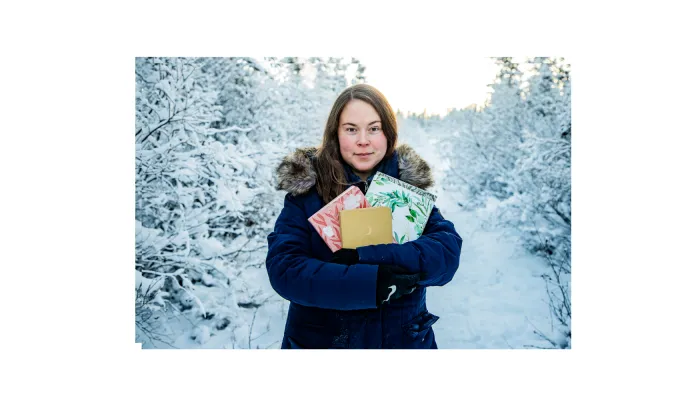Isabella Wang
Biography
Isabella Wang is the author of the chapbook, On Forgetting a Language, and her full-length debut, Pebble Swing, currently a finalist for the Dorothy Livesay Poetry Prize. Among other recognitions, she has been shortlisted for Arc’s Poem of the Year Contest, The Malahat Review’s Far Horizons Contest and Long Poem Contest, and was the youngest writer to be shortlisted twice for The New Quarterly’s Edna Staebler Essay Contest. Her poetry and prose have appeared in over thirty Canadian literary journals and three anthologies. In the community, she is a youth mentor with Vancouver Poetry House, an Editor at Room magazine, and board member with poetry in canada. Under the guidance of Evelyn Lau, Fiona Tinwei Lam, and Rob Taylor, through SFU's continuing studies program in creative writing, Wang first started writing poetry and publishing in high school. Since then, her poetry have focused on themes of environmental politics, body politics, immigration, memory, language, and housing displacement for marginalized youths and communities. Specializing in topics surrounding poetic forms, Wang's styles vary from the traditional ghazal, sestina, to free verse and experimental poetry.
Micro-interview
My passion for poetry developed over my last two years of high school, when I really started to get involved in all the English and creative writing programs available to me. After reading Evelyn Lau's poem, "The Mall," in an English provincial exam in grade 11, the poem resonated with me particularly because I remembered it as the first time I had been introduced to a contemporary Chinese-Canadian writer. Until then, I knew only of the canonical poets, Shakespeare, etc., and did not know what a poetry collection even was; how to start; where to look. After looking up Lau's biography, I learned that she was Vancouver’s poet laureate at the time, and that we shared a lot of experiences as both eager young poets, navigating difficult circumstances at home. I saw that she was teaching a six-week poetry course with other poets, Rob Taylor and Fiona Tinwei Lam with SFU Continuing Studies, so I signed up with my lunch money and began attending poetry workshops. Those courses changed everything for me. They were my first exposure to working and studying with professional poets, who taught me how to edit my own work, introduced me to a lot of other poets and their poetry collections, as well as the beautiful poetry communities we have. So, in grade 12, as I was attending these workshops, I was also going to lots of literary readings and volunteering at festivals. There, I met many local poets, and their collections became the body works to really influence me. Some favourites from that time are Jordan Abel's The Place of Scraps, Ocean Vuong's Night Sky with Exit Wounds, Rita Wong's Undercurrent, Leanne Betasamosake Simpson's Islands of Decolonial Love, and Chelene Knight's Dear Current Occupant. I encountered many other voices through literary journals.
I think poetry began for me during a difficult phase, shortly after my ballet career ended, and I was looking for another creative medium to express myself through. I loved writing; English class and the library became a solace for me. As for the rest, I actually owe a lot to the support of my high school teachers. In grade eleven, my biology teacher, Mr. Mayer, took us on a trip to Bamfield Marine Science Centre. I was so inspired by the marine life and beautiful west coast that I wrote a poem. Mr. Mayer read it and said some of the kindest words to me; hung the poem up in his classroom. It meant so much to me because that was the first time anyone had ever said they liked my poem. I've been writing voraciously since then. Shortly afterward, I started taking poetry workshops at SFU Continuing Studies, and learned about honing my craft. I began to submit more and eventually, work with editors toward publishing. It took me a few years to consider myself as an actual "poet" though. At literary readings, I was initially too afraid to introduce myself as a poet, thinking it would offend other "actual" poets. I think I didn't come to see that of myself until another poet referred to me as a poet while introducing me. When you are an aspiring writer, it sometimes takes others to believe in you before you believe in yourself
This is a hard question to answer. It is difficult to narrow down one thing.
In my last year of high school, I actually did memorize, and record myself reciting Evelyn Lau's "Dear Updike" and Ocean Vuong's "DetoNation" for the Poetry in Voice competition. These two poems move me to the core every time. I still have them memorized.


